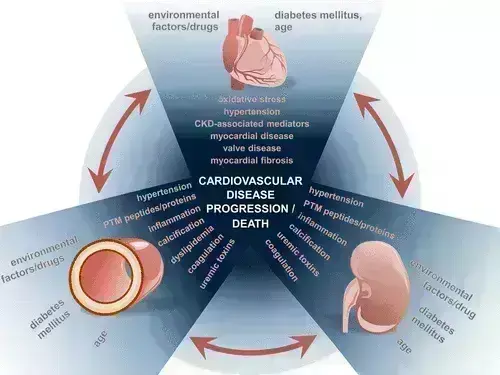- Home
- Medical news & Guidelines
- Anesthesiology
- Cardiology and CTVS
- Critical Care
- Dentistry
- Dermatology
- Diabetes and Endocrinology
- ENT
- Gastroenterology
- Medicine
- Nephrology
- Neurology
- Obstretics-Gynaecology
- Oncology
- Ophthalmology
- Orthopaedics
- Pediatrics-Neonatology
- Psychiatry
- Pulmonology
- Radiology
- Surgery
- Urology
- Laboratory Medicine
- Diet
- Nursing
- Paramedical
- Physiotherapy
- Health news
- Fact Check
- Bone Health Fact Check
- Brain Health Fact Check
- Cancer Related Fact Check
- Child Care Fact Check
- Dental and oral health fact check
- Diabetes and metabolic health fact check
- Diet and Nutrition Fact Check
- Eye and ENT Care Fact Check
- Fitness fact check
- Gut health fact check
- Heart health fact check
- Kidney health fact check
- Medical education fact check
- Men's health fact check
- Respiratory fact check
- Skin and hair care fact check
- Vaccine and Immunization fact check
- Women's health fact check
- AYUSH
- State News
- Andaman and Nicobar Islands
- Andhra Pradesh
- Arunachal Pradesh
- Assam
- Bihar
- Chandigarh
- Chattisgarh
- Dadra and Nagar Haveli
- Daman and Diu
- Delhi
- Goa
- Gujarat
- Haryana
- Himachal Pradesh
- Jammu & Kashmir
- Jharkhand
- Karnataka
- Kerala
- Ladakh
- Lakshadweep
- Madhya Pradesh
- Maharashtra
- Manipur
- Meghalaya
- Mizoram
- Nagaland
- Odisha
- Puducherry
- Punjab
- Rajasthan
- Sikkim
- Tamil Nadu
- Telangana
- Tripura
- Uttar Pradesh
- Uttrakhand
- West Bengal
- Medical Education
- Industry
Low Blood Glucose Index Associated with Cardiovascular Events in Diabetic kidney disease Patients

Low Blood Glucose Index is Associated with Cardiovascular Events in Diabetic Hemodialysis Patients suggests a new study published in the Blood Purification.
Blood glucose monitoring was vitally important in diabetic kidney disease (DKD) patients for preventing complications and improving survival rates. The associations between glycemic variability and blood biochemical indicators were underestimated in patients with DKD undergoing hemodialysis. Therefore, we primarily aimed to investigate the glycemic variability and 1-year risk of cardiovascular disease events in diabetic hemodialysis patients. And we secondarily aimed to explore the association between glycemic variability and blood biochemical indicators.
In total, 27 patients were included in the final analysis. Continuous glucose monitoring (CGM) was used to evaluate glucose variability for 14 days. Patients were divided into two groups by the cutoff level of time in range (TIR; >70% or ≤70%). The three-point major adverse cardiovascular event (3P MACE) was recorded within 1 year.
Results: After 1 year of follow-up, 4 patients in the high-TIR group and 3 patients in the low-TIR group had 3p MACE. Higher low blood glucose index (LBGI) level in diabetic hemodialysis patients increased the risk of 3p MACE outcomes (HR = 2.37, p = 0.018). And the level of albumin was positively associated with Low Blood Glucose Index (β = 0.51, p = 0.036). The plasma levels of albumin, glycosylated hemoglobin, and hemoglobin were positively associated with other CGM parameters.
Low Blood Glucose Index during 14 days was positively associated with the risk of cardiovascular events in diabetic hemodialysis patients.
Reference:
He R, Xuan Y, Zhu L, Pang S, Qin L, Tian J, Yuan J. Low Blood Glucose Index Associated with Cardiovascular Events in Diabetic Hemodialysis Patients. Blood Purif. 2023 Aug 22:1-11. doi: 10.1159/000531964. Epub ahead of print. PMID: 37607516.
Keywords:
Low, Blood, Glucose, Index, Associated, Cardiovascular, Events, Diabetic, Hemodialysis, Patients,Blood Purification, Cardiovascular disease; Continuous glucose monitoring; Diabetic kidney disease; Glycemic variability; Hemodialysis, He R, Xuan Y, Zhu L, Pang S, Qin L, Tian J, Yuan J.
Dr. Shravani Dali has completed her BDS from Pravara institute of medical sciences, loni. Following which she extensively worked in the healthcare sector for 2+ years. She has been actively involved in writing blogs in field of health and wellness. Currently she is pursuing her Masters of public health-health administration from Tata institute of social sciences. She can be contacted at editorial@medicaldialogues.in.
Dr Kamal Kant Kohli-MBBS, DTCD- a chest specialist with more than 30 years of practice and a flair for writing clinical articles, Dr Kamal Kant Kohli joined Medical Dialogues as a Chief Editor of Medical News. Besides writing articles, as an editor, he proofreads and verifies all the medical content published on Medical Dialogues including those coming from journals, studies,medical conferences,guidelines etc. Email: drkohli@medicaldialogues.in. Contact no. 011-43720751


